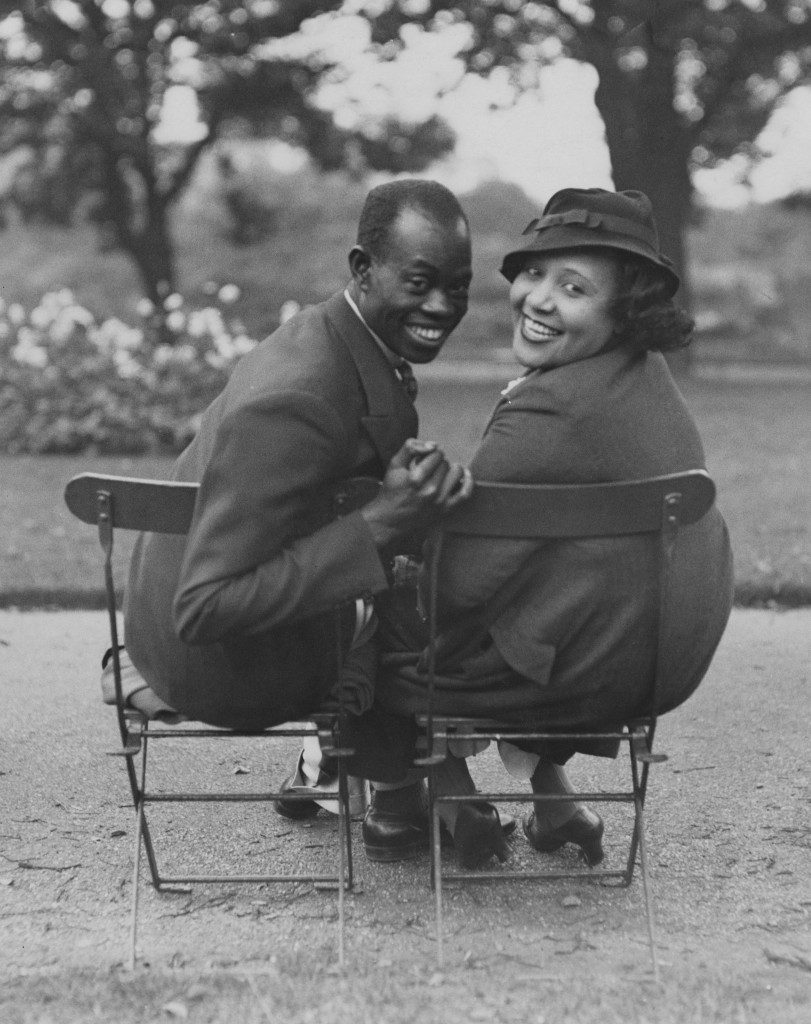16362. (Chick Corea) My Spanish Heart
(William Walton) Songs [Benjamin Luxon, baritone & David Willison, piano]:
. . . . 16363. (William Walton) “The Wind From The West“
. . . . 16364. (William Walton) “When As the Rye”
. . . . 16365. (William Walton) “My Gostly Fader”
. . . . 16366. (William Walton) “Lullaby”
Read more »
Category Archives: CU - Listening 2006 - Page 2
First-time listening for September, 2006
‘Ali Riza Mashayikhi
‘Ali Riza Mashayikhi is the dominant figure in modern Iranian concert music. Born in 1940 in Tehran, he studied in Vienna and Utrecht, and was introduced to modernist tecbniques by Otto Jelinek. However, he does not appear to be committed to any of the dreadful “systems” that ideologized composition in the 20th century. He sensibly draws on any technique that is useful to the creation of a particular piece. Some of his works draw heavily on Iranian folkloric tradition, intending to convery a regional spirit, while others pursue other ends entirely. Mashayikhi was one of the first composers to bring computerization into middle-eastern music. The pieces in my collection are: Symphony #2. Op.57, the Concerto for Violin and Orchestra, Op.96, and Nous ne verrons jamais les jardins de Nishapour for Two Pianos and Orchestra, Op.56. The latter piece is an example of a work that does not directly employ any Persian material that I can see, but nevertheless conveys a distinctly Persian mood. His output is huge, so it will require a lot of exploring. I like very much what I’ve heard so far. A curious thing about the composer’s name: While he is undoubtedly Persian, “Al-Mashayikhi” is Arabic for a person of the Mashayikh tribe in Iraq, centered in the towns of Tarmiya and in Al-Hawejah, quite close to Saddam Hussein’s (and Saladin’s) birthplace in Tikrit. Mashayekhi or Mashayikhi seem to be common Iranian names. Jamshid Mashayekhi is an Iranian film star, and Ario Mashayekhi is an expatriate painter, sculptor, and actor living in Chicago. Another curiosity: there is another composer, named Nader Mashayekhi, also trained in Vienna, but born in 1958 (a bit old to be a son, and a bit young to be a brother — are they related?). I have not heard any of his music. There is also a folkloric group from Iran called Mashayikhi Ensemble. The name seems to be profoundly musical. Are we dealing, here with an extended talented family like the Bachs were in Thuringia? Or is it all coincidence?
Fela Sowande

Fela Sowande (1905 — 1987) with his fiance, American soprano Mildred Marshall, in Regent’s Park, London, 13th September 1936. Sowande is working as a the pianist and Marshall is singing in the London production of Lew Leslie’s musical revue, Blackbirds Of 1936.
Nigeria has produced some of the greatest musicians of the world. Probably best known are juju master King Sunny Adé and the great jazzman Fela Anikulapo Kuti. But in an earlier generation, Fela Sowande loomed quite as large. Sowande was successful in popular music, as a bandleader in the early Highlife scene, as well an accomplished jazz performer. He was also a fine classical organist and choral conducter. His largest body of work is church choral and organ music. Migrating to Britain, he achieved instant fame as a concert pianist with a performance of Gershwin’s Rhapsody in Blue, and subsequently performed in duets with Fats Waller. He eventually returned to Nigeria as a teacher, and then lived his last years in Ohio, where he is buried. Read more »
First-time listening for August, 2006
16290. (Siouxsie and the Banshees) Juju
Rough Guide to Brazil: Bahia:
. . . . 16291. (Timbalada) “Motumba”
. . . . 16292. (Sylvia Torres) “Take Sarava”
. . . . 16293. (Daniela Mercury) “Swing Da Cor”
. . . . 16294. (Ze Paulo Becker) “A Vida e Boa”
. . . . 16295. (Riachao) “Pitada de Tabaco”
Read more »
Thursday, August 24, 2006 — Moscow Nights on the Subway
One of those little moments of beauty. I was in the Finch subway station. There are musicians who busk in many of the stations. In this case, it was an old man with an accordion. He struck up a few chords, instantly familiar to me. And to someone else. A middle-aged Asian woman, walking by, also recognized what was coming, and immediately began to sing. It was a trained voice, very beautiful. She sang, in Russian, Vasily Soloviev-Sedoi’s popular song, Подмосковные Вечера. Now, most Russian songs are sad and heart-tugging, but “Moscow Nights” is that, squared and cubed. It comes off best with a deep male voice — the most famous version is sung by Vladimir Troshin. But this woman was very effective. By the time she was finished, the whole, bustling mass of commuters in the hall that led from the bus platforms to the trains was transfixed. Teenagers, who would normally turn up their iPods as they trudged obliviously past any busker, were stopping to drop coins into the accordionist’s hat. The woman started to dance as she sang. The crowd was mesmerized. When the song ended, with mothers, children, businessmen, students, and subway workers applauding, the accordionists did not skip a beat, and launched immediately into another song. Some opera tune, vaguely familiar to me, but which I could not identify. The woman jumped into it instantly, singing the full aria in Italian. More applause. Again, only a second’s hiatus, and they were doing Bésame mucho, a song so corny that normally it’s unbearable. But she gave it dignity.
Three songs, and then she obviously had to get to work, or whatever. I spoke to her for a moment as we headed for the trains. Her accent was Korean. Did she speak Russian? No, she said, she had merely memorized the words phonetically. And she disappeared, nameless, with her grocery bags, down a crowded escalator into the silver cars that sped under the earth. Read more »
Monday, August 14, 2006 — Good …Not Respectable
When Joseph Milo, an out-of-work conductor and pianist in Montreal, learned that his building’s doorman was an out-of-work cellist, and that his pizza was delivered by an out-of-work bassoonist, he had an inspired idea. Montreal is full of immigrant musicians who have knocked at the doors of the gold-plated and respectable institutions, and gotten nowhere. Are they down-and-out because they are poor musicians? Or just because our society is too dumb to employ their talents? The evidence of my ears points to the latter. Now the Montreal Musicians of the World Symphony Orchestra plays in the basement of Côte St-Luc municipal building. It’s not the Montreal Symphony’s hundred-million-dollar venue, but the music is good, and the blue-collar, blue-jeans audience gets a good show. Surprise, surprise! — if good music is played at a logical price in an atmosphere that isn’t rancid with pomposity, people flock to hear it.
Another small victory in the endless war we must fight against the sclerotic forces of Respectability.
First-time listening for July, 2006
Sichuan Folk Song and Ballad, Vol.2:
. . . . 16130. (Cheng Yong-Ling) “Flying Kites” [Sichuan Qingyin]
. . . . 16131. (Li Cun-Liang) “Planting Cape Jasmine Along the Wall” [Chongqing folksong]
. . . . 16132. (Lian Zheng-Hua) “Planting Paulownia” [Yibin folk song]
. . . . 16133. (Li Su-Hua) “My Diligent Sister” [Chuannan folk song]
. . . . 16134. (Lian Zheng-Hua) “What a Cruel Crab” [Naxi folk song]
. . . . 16135. (Li Cun-Liang) “Brother Wang’s Tune” [Hanyuan folk song]
Read more »
First-time listening for June, 2006
15845. (Frank Mills) The Poet and I
(Mike Oldfied) Working Towards a Climax [personal compilation by William Breiding]:
. . . . 15846. (Mike Oldfield) “The Lake”
. . . . 15847. (Mike Oldfield) “Crises”
. . . . [3478] (Mike Oldfield) “QE2”
. . . . 15848. (Mike Oldfield) “Music From the Balcony”
. . . . 15849. (Mike Oldfield) “The Wind Chimes, Pt.2”
Bluvan Tues ― Sounds From Tuva [compiled by Spider Robinson]:
. . . . 15850. (Kongar-Ol Ondar) “Alash Khem (The Alash River)”
. . . . 15851. (Kongar-Ol Ondar & Paul “Earthquake” Pena) “What You Talkin’ About?”
Read more »
DJ Qmar
The worldwide Tamil diaspora supports a thriving dance and club scene. Among the young Tamil DJs, none has been more innovative than Kumar Narayanasamy, better known as “DJ Qmar”. He was born in Jaffna, Sri Lanka, but grew up in Denmark, where he is still based. I have both his Tamil Vibrations albums, which you can often hear in my neighbourhood (the oldest Tamil neighbourhood in Toronto). There are no lame remixes of American rap on these gems! These mixes are bold. http://www.tamilstar.dk/djqmar
Jesse Cook
 Nueva Flamenco is a style of guitar music that incorporates jazz, latin pop, and middle-eastern elements into traditional flamenco. Jesse Cook, born in France of Canadian parents, and now operating out of Toronto, has been a superb practitioner of this style for a decade. The only one of his seven albums I have is Nomad (2003), which features wonderful vocals by the Egyptian singer Maryem Tollar on the song “Qadukka-l-Mayyas”, perhaps the best item. The album incorporates so many world influences, with guest contributions from Hossam Ramzy, Flora Purim, the Afro Celts, and even the BoDeans (!), that the flamenco element is sometimes nearly invisible. Cook is such a fine guitarist that he feels no need to be a constant center of attention –— in several of the tracks he provides only a modest accompaniment while other members of the large ensemble take the spotlight. But when he does move into the spotlight, his guitar work is stunning, and his vocals pleasant. http://www.jessecook.com
Nueva Flamenco is a style of guitar music that incorporates jazz, latin pop, and middle-eastern elements into traditional flamenco. Jesse Cook, born in France of Canadian parents, and now operating out of Toronto, has been a superb practitioner of this style for a decade. The only one of his seven albums I have is Nomad (2003), which features wonderful vocals by the Egyptian singer Maryem Tollar on the song “Qadukka-l-Mayyas”, perhaps the best item. The album incorporates so many world influences, with guest contributions from Hossam Ramzy, Flora Purim, the Afro Celts, and even the BoDeans (!), that the flamenco element is sometimes nearly invisible. Cook is such a fine guitarist that he feels no need to be a constant center of attention –— in several of the tracks he provides only a modest accompaniment while other members of the large ensemble take the spotlight. But when he does move into the spotlight, his guitar work is stunning, and his vocals pleasant. http://www.jessecook.com